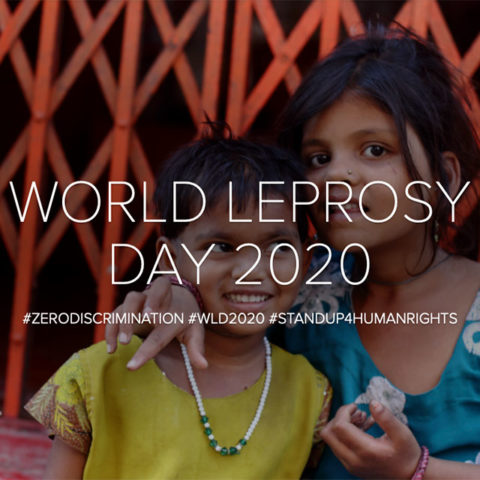
World Leprosy Day 2020
Do you know what you think you know about leprosy?
GENEVA, Switzerland – Imagine having the doctor refuse to treat you years after you have been cured of a disease. Having a nurse step back and adamantly not touch you though you started taking antibiotics months ago. Or having your family ostracised in the community. All because you were affected by leprosy. No one should go through such stigma or discrimination at any point in their lives, especially a vulnerable one.
Health-related stigma continues to be a major cause of discrimination and exclusion. Fear of stigma deters people from seeking healthcare when they may be affected by leprosy, adding to the risk of disability and ongoing medical issues.
On World Leprosy Day, Sunday 26 January 2020, ILEP and its Members call for States to use the UN Principles and Guidelines for the elimination of discrimination against persons affected by leprosy and their family members, which were adopted by the Human Rights Council in 2010. They broadly mirror the Universal Declaration on Human Rights, and the UN Convention on the Rights of Persons with Disabilities (CRPD), and provide a valuable roadmap for countries seeking to reduce discrimination and promote the human rights of persons affected by leprosy. By working together, we can achieve zero discrimination for people affected by leprosy and be one step closer to a world with zero discrimination and stigma.
The word leprosy has come to mean more than a curable illness – it is used as a cudgel to exclude, shame and harm people suffering from a disease. Politicians still use it as a symbolfor everything that should be kept apart. And the use of this metaphor has led to massive human rights violations of persons affected by leprosy and their family members. As a result, individuals and families experience social isolation. This affects people‘s self-esteem, disrupts their family relationships and limits their ability to socialise, obtain housing and jobs – their human rights.
On World Leprosy Day, ILEP and its Members provide an important opportunity to draw attention to the often-neglected aspects of this disease – the deep-rooted myths and misconceptions about the disease that many persons affected experience daily. And showcase which articles in the Universal Declaration of Human Rights are being violated.
Each year about 210,000 women, men and children are diagnosed with leprosy, according to World Health Organization figures. Up to 50% of people affected by leprosy will face mental health issues, such as depression or anxiety. There is also an increased risk of suicide among people living with the disease.
Stigma still frames many discriminatory laws in place, in many different jurisdictions, against persons affected by leprosy. ILEP research from 2019 has revealed that 132 laws discriminating against people affected by leprosy exist in 23 countries. Other ways that stigma is being perpetuated is through social exclusion, a lack of community participation of persons affected, and no or little access to services (economic and social) and rehabilitation. States must abolish these laws and instead promote legislation that ensures human rights and a life of dignity for people affected by leprosy.